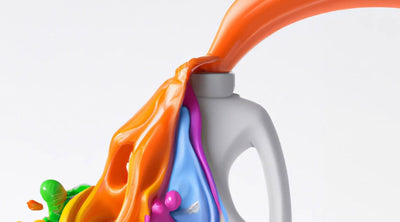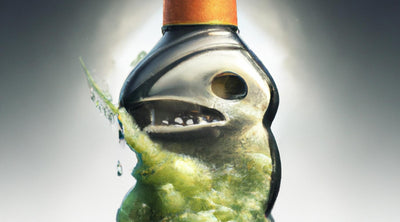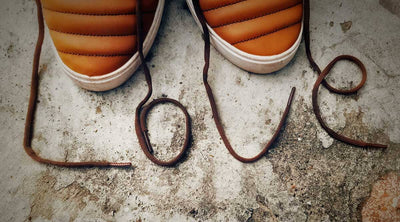The Issues with Landfills
februar 24, 2021Landfills (tips, dumps, rubbish piles, etc.) aren’t completely terrible, but most of the time they are.
They of course serve as a place to put our trash, which we didn’t have before they existed. Before landfills, the environment was our trash can: the oceans, lakes, rivers, and that hill that we would pull up to the edge of and empty our used items into.
Out of sight out of mind. Our hands are clean. But we all know now they really weren’t. Because every piece of trash that ends up in the environment is on us...and it does have an impact.
Landfills were a solution, but not anymore

Landfills are even more out of sight out of mind. Instead of seeing all of our trash and waste in natural areas all over, we are seeing it (or hiding it) in a big pit somewhere away from the majority of people. It’s important to note however, that pit will very quickly become a mountain. A mountain of mostly unnecessary waste.
Is this better? Or is it just a bigger band aid on an infected wound? Landfills, because they are even more out of sight, encourage even more waste than when we would see the trash we were polluting the environment with. Furthermore, landfills actually prevent organic materials from breaking down correctly. So all of those compostable products we have that are being thrown away? They aren't breaking down as quickly as we think.
This is because the environment they are in is starved of oxygen. This creates an anaerobic breakdown which emits harmful gases. Whereas a compost pile, the beautiful thing that it is, is typically an aerobic breakdown and does not emit harmful fumes.
The (even) dirtier side to landfills

Landfills will account for 10% of global greenhouse gas emissions by 2025 if nothing changes. The top two gases that landfills emit are methane and CO2. Many may think CO2 is the more important one of these. It’s usually the one that gets the spotlight, but it’s not necessarily the most important.
Methane is a far more potent global warming greenhouse gas than CO2, it is 86 times more potent over a 20 year period. However, methane also has a far shorter life span than CO2 in the atmosphere, this means by focusing more efforts on methane reduction we can drastically reduce greenhouse gas effects in the timeline that we need.
In short, landfills were created as a solution to us seeing our trash all over, and they allowed us to continue mindlessly producing waste from our overconsumption lifestyles.
The easy fix is almost never the right fix.
And landfills are far from right.
Yes, it does make more sense for processing plants to burn that waste and convert it into energy, but more sense does not equate to...enough sense.
We can drastically reduce the need for landfillsIt's true, some things are just incredibly difficult to recycle or to compost, such as spent nuclear fuel. Maybe there will always be waste that we will have to put somewhere. But a vast majority of our products that we create can and therefore should be created in a way that will benefit or be completely neutral to the planet when they break down.
The truth is, even the landfills that burn their trash are running out of space from all of the ash they create. Which isn’t totally surprising when we take a look at just how much waste we produce in a year.
We've got options

Landfills were a good solution when aesthetics were mostly important and the environment was only sort of important. But now we are realizing the importance of changes that actually benefit the planet, and not just our appearance as a species. Luckily, many of the actions we can take in order to benefit the planet will also be aesthetically pleasing.
Which is the most aesthetically pleasing of the three:
- Dumping our waste into the environment wherever we want.
- Dumping our mountains of waste into one spot called a landfill.
- Not generating any waste and therefore drastically eliminating the need for a landfill or any solid waste pollution at all.
Now take those same options, and guess which one is (also) better for the environment. Prevention always comes first for a reason, because it is the most sustainable. And minimalism, or less clutter, has it’s plethora of benefits as well.
Landfills, to the extent that we are using them, are archaic. As are the things we are filling landfills with: single use items and organic materials. We all know at least a couple of the solutions: composting and switching to reusables. Of course these things alone wouldn’t eliminate the need for landfills completely, but they would drastically reduce the space, emissions, soil pollution, and water pollution associated.
This issue alone could account for 10% of our emissions, all caused from waste. And this is only one single issue related to zero waste. And zero waste is only one way we can help the planet! This is so motivating when we think about it. Because it gives us so many opportunities to have a positive impact on the world in almost every single thing we do.
Start now, wherever feels right for you. Whether that is to prevent further waste in landfills, to declutter your life, or to establish a mindset that sets the stage for other environmental changes. Whatever the reason. Just. Begin.
MORE Sustainability 101 ARTICLES View all ›
Ready to make
the switch?
- Powerful Cleaning
- Dissolves Easily
- Skin-Friendly
- Eco-Friendly
- No Mess














